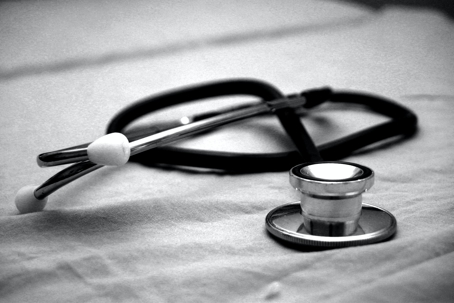When a medical emergency strikes, your health and safety is the top priority—as it should be. Unfortunately, cost of treatment can range wildly depending on the condition and can quickly pile up—especially if your medical issue has also led to a loss of income or a drop in usable credit. If medical debt is sending you into a complete tailspin, you are not alone—and the good news is, you still have options for financial relief.
Does Bankruptcy Clear Medical Debt?
In 2014, the Consumer Financial Protection Bureau found that 43 million Americans have overdue medical debt listed on their credit reports. With the recent pandemic hospitalizing even more Americans, it is likely that this number hasn’t dropped. While there is no such thing as medical bankruptcy, qualifying for Chapter 7 or Chapter 13 bankruptcy can discharge your medical debt. However, bankruptcy is not the right choice for everyone and there are a few things to determine before starting the filing process.
5 Things to Consider Before Filing:
- Do you qualify for medical payment assistance?: Did you know that many hospitals offer balance assistance and waiver opportunities to help low income individuals with payments? Check with the billing department at your hospital to see if they offer a program and if you qualify.
- Are you considered judgement proof?: If you don’t have any income or equity that a creditor can collect, you might be considered judgement proof. This can include those who don’t own property and collect Social Security or other forms of exempt income.
- Are you expecting further treatment?: When you qualify for bankruptcy, it wipes debt incurred before and at the time of filing. However, any other bills that occur after filing can be collected, and there is a multi-year long waiting period before you can receive another Chapter 7 discharge.
- Do you have other forms of debt?: There are three types of debt, secured, unsecured, and priority and each one of these is handled differently. If in addition to your medical debt, you have credit card debt or utility balances, Chapter 7 can help with all of these. You are not able to discharge everything though. For example, you will still be responsible for debts like income tax and domestic support.
- What type of bankruptcy do you qualify for?: Both Chapter 7 and Chapter 13 offer benefits but require different qualifications and it is important to properly fill out the means test and understand debt limits. A qualified attorney can help you navigate this process.
Know All of Your Options Before Filing. Speak with a Dedicated Attorney Today!
With a free initial consultation, Robert H. Solomon, PC offers a no-pressure way to discuss your medical debt related bankruptcy options with a knowledgeable professional. We strive to answer all of your questions, dispel misconceptions around bankruptcy, and provide the information needed to help you find relief.
Call us today at (516) 407-8199 or reach out online to schedule a consultation. We now happily offer video consultations for your safety and convenience.

